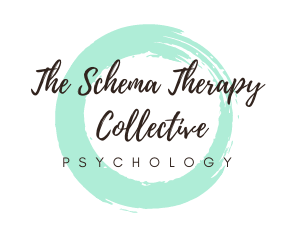Do you tend to be rational at all times?
Do you struggle to be spontaneous, silly, and in the moment?
Do you rarely express feelings?
Do you inhibit one emotion altogether?
When you have the emotional inhibition schema you struggle to express your authentic feelings. This schema develops in childhood usually to avoid punishment or disapproval for feelings that are not tolerated in your family.
Sometimes it occurs due to over-protective and rigid parenting that discouraged play and spontaneity.
As defined by Jeffrey Young the emotional inhibitions schema is the excessive inhibition of spontaneous action, feeling, or communication — usually to avoid disapproval by others, feelings of shame, or losing control of one’s impulses. The most common areas of inhibition involve: (a) inhibition of anger & aggression; (b) inhibition of positive impulses (e.g., joy, affection, sexual excitement, play); (c) difficulty expressing vulnerability or communicating freely about one’s feelings, needs, etc.; or (d) excessive emphasis on rationality while disregarding emotions.
I often see this schema in therapy when I try to connect a client’s thoughts and feelings and my client tries to use rational thought to answer the question, avoiding contact with the emotion. These clients will also show limited emotion in their tone, bodies, and facial expression. Often clients with emotional inhibition schema have pushed their feelings down so far they will tell me they don’t feel, they only think.
The problem is you still have the full spectrum of feelings even if the emotional inhibition schema blocks you from experiencing them. It can make life feel safe but also dull and meaningless when you can’t come into contact with how you feel. It can lead to problems in relationships with partners who want the emotional connection from you but feel shut out behind your wall of rational thinking and blank facial expressions.
But ultimately your needs for authentic self-expression, true interpersonal connectedness, play, and fun can’t be met when the emotional inhibition schema runs your life.
In schema therapy, we help you reconnect with your authentic feelings. We explore the feelings in your vulnerable child part (little you) and angry child part, as well as working with memories that helped establish the schema. Ultimately we help build your Healthy Adult part to help you fully express yourself and meet your emotional needs. We also develop your Happy Child mode, so you can experience more fun and spontaneity.


